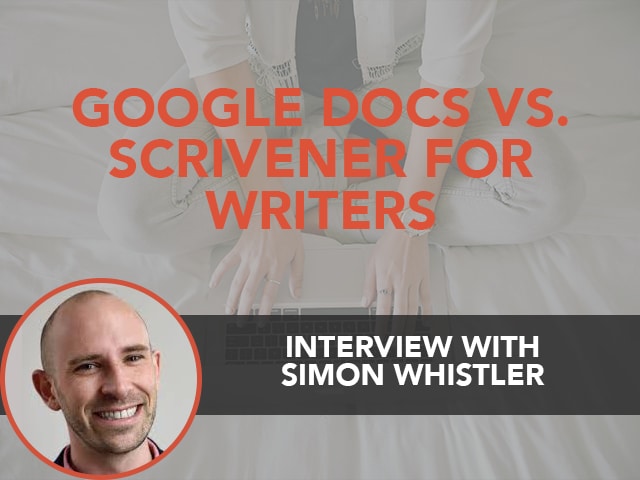Simon Whistler embodies the spirit of the do-it-yourself writer. In this Scrivener Superpowers interview, Simon and I talk about his editing process and how he came to book writing.

Simon Whistler's Thoughts on Editing and Scrivener
Like many authors, Simon came to writing through a circuitous route. He began by interviewing authors on his podcast, Rocking Self Publishing, and narrating audiobooks. After dozens of podcasts and hundreds of hours narrating and producing audio files, Simon found himself with a large amount of information on those subjects. This knowledge base turned into his first two two nonfiction books, Audiobooks for Indies and Bootstrapping for Indies.
Though he'd never written a book before, Simon found a method he believed in, and set out on the rewarding journey of writing and self-publishing nonfiction. His books teach other authors the DIY process he used for audiobooks and self-publishing on a budget.
In our interview, Simon told me that he's working on a third book in the for Indies series. We also cover how he started drafting his books in Google Docs before moving over to Scrivener for its superior organizational capacity, how he relies on the text-to-speech function during the editing process, and what writing blind spots are unique to voice actors.
Do you want to learn more about Simon's DIY spirit?
Watch the full interview here.
Matt Herron is the author of Scrivener Superpowers: How to Use Cutting-Edge Software to Energize Your Creative Writing Practice. He has a degree in English Literature, a dog named Elsa, and an adrenaline addiction sated by rock climbing and travel. The best way to get in touch with him is on Twitter @mgherron.



Loved the article. There is one more option, yWriter5. It’s free and safe to download and use.
Ah, but that would mean less people get scrivener, and that thewritepractice gets less money because of it. So keep your awesome free programs to yourself while capitalism is taking its toll here, ehh?
Well thanks to this ”capitalism taking its toll here” you have access to (most of the time) quality content for free.
Good!☺
Lucky me I use Linux and use scrivener it did not cost me anything. Used libre office before. But scrivener is realy nice need to figure it out a bit more. But until now it works just fine.
I’m sorry, but paying money to write makes no sense. I was going to try Scrivener but when I found out it costs money it was an automatic rejection from my part. So Google Docs it is.
if you do nanowrimo, you get scrivener at a super discounted rate-I believe it’s 50% off. I know I paid $20 and cost was an initial deterrent. Once I started using it, I liked it a lot more. Just a thought.
Celtx, is also a free program that lets you write various things like novels, Theatre Storyboard, or Comic Book. It is so cool! There are also index cards you can use…. I have used it for several stories… If you are interested in something different try it out.
I haven’t used Scrivener myself as I have my own organizing system when writing. I do regularly hear that writers find its different sections for storing research or story-boarding helpful.